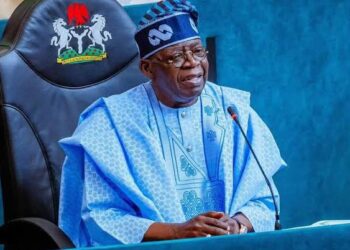Article summary
- DAPPMAN met with President Tinubu on June 7 and made some demands that could enable ease of business in Nigeria’s oil market.
- The association is in full support of the move to deregulate fuel. However, they know there are challenges ahead and are pledging their full support to the administration as it provides relief for Nigerians.
- DAPPMAN anticipates reduced dependence on fossil fuels, which will result in increased investment and faster development of gas and electricity as alternative energy sources.
The Depots and Petroleum Products Marketers Association of Nigeria (DAPPMAN) has asked President Tinubu to scrap, reduce and suspend some charges and levies until market stability has been achieved.
The Association said this during a June 7 meeting with the president. The Association’s Chairman, Dame Winifred Akpani, who is also the Chief Executive Officer of Northwest Petroleum and Gas Company Limited, presented some demands to the president.
These demands include:
- Reduction of all dues and levies to government agencies, particularly NPA PLC and NIMASA, to the barest minimum and make them payable in Naira. This will drastically reduce pressure on the country’s foreign exchange rate, and reserves, and keep the pump price of petrol in check.
- Suspension of all charges and taxes imposed by the regulator, NMDPRA, as stipulated in the PIA 2021 until the country achieves market stability.
- Scrapping of the 2.5% security deposit requested by NNPC Limited for all purchases, as it burdens marketers.
- Revision of the clause in the Petroleum Industry Act 2021 that restricts importation to only companies with active local refining licenses and/or proven track records of international crude oil and petroleum products trading.
According to DAPPMAN, the association is in full support of the move to deregulate fuel. However, they admitted to being aware of the challenges ahead and are pledging their full support to the administration as it provides relief for Nigerians.
DAPPMAN noted that it was aware that there is inadequate understanding and perceived opacity in the reallocation of savings from withdrawn benefits such as subsidy removal. To address this, they pledged to intensify public enlightenment efforts and ensure that their costs are efficiently managed to deliver value through competitive pump prices.
On behalf of DAPPMAN, Dame Akpani said:
- “We pledge to ensure a healthy and robust petroleum industry that guarantees an adequate supply of petroleum products at highly competitive prices. Nigerians will no longer have to suffer in petrol queues.
- “With our years of experience in the trade and distribution of petroleum products, we will ensure efficiency in sourcing and delivery. The forces of demand and supply will naturally promote competition, and efficiency, and prevent price gouging.
- “We applaud Mr. President’s statement on harmonization to a single foreign exchange rate. This is critical as it will eliminate arbitrage and provide a level playing field not only in our industry but also for the Nigerian economy at large. It will also ensure the highest quality of product supply at the best prices.
- “We anticipate reduced dependence on fossil fuels, which will result in increased investment and faster development in gas and electricity as alternative energy sources.”
What you should know
Speaking to the press after the meeting with President Tinubu on June 7, Dame Akpani said that the plan is to ensure there are alternatives to fuel. She highlighted the use of natural gas for vehicles in the shortest possible term, to reduce dependence on fuel. The association will provide 100 units of CNG/diesel-powered, 50-seater buses for the most vulnerable citizens.
She said:
- “We have collectively agreed that we’re going to work at providing real mass transit buses that work, the ones that run on compressed natural gas and diesel interchangeably, and hopefully we’re going to start with about 50 to 100. And that is in the very, very short term.
- “These are locally produced, so you see that we’re also providing jobs; a lot more jobs because we’re using local assembly plants, we are not importing this. That is less pressure on our foreign exchange, and that’s more jobs for Nigerians.






















